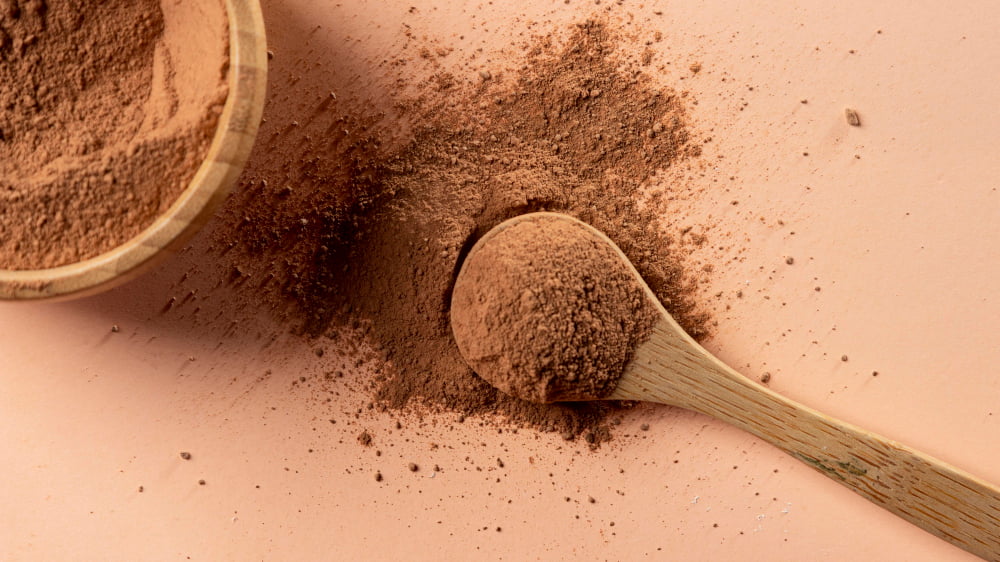FREE SHIPPING OVER $50
Fulvic Acid Unveiled: Unlocking the Fountain of Youth Naturally!
Have you ever wondered how some people seem to age gracefully, while others look older than their years? What if I told you that there is a natural substance that can help you slow down the aging process and boost your health and vitality? It’s called fulvic acid, and it’s one of the most powerful antioxidants and detoxifiers on the planet.
What is Fulvic Acid

Fulvic acid is a type of organic acid that is derived from humus, the dark brown substance that forms when organic matter decomposes in the soil. Humus contains humic and fulvic acids, which are complex molecules that have many functions in nature.
Fulvic acid is the smaller and lighter fraction of humic acid, which can easily penetrate the cell membranes and transport nutrients and minerals into the cells. It also acts as a powerful antioxidant, anti-inflammatory, antiviral, antibacterial, antifungal, and detoxifier.
Fulvic acid is not a single compound, but a mixture of hundreds of different molecules that vary depending on the source and quality of the humus. It can be extracted from various sources, such as peat, lignite, shilajit, or compost.
Benefits of Fulvic Acid
Fulvic acid has many benefits for human health and wellness. Some of the most important ones are:
- Anti-aging: Fulvic acid can protect the cells from oxidative stress, which is one of the main causes of aging and chronic diseases. Fulvic acid can also stimulate the production of collagen and elastin, which are essential for keeping the skin firm and elastic. It can also improve blood circulation and enhance cellular regeneration, which can help heal wounds and scars faster.
- Immune system: Fulvic acid can modulate the immune system and fight inflammation, which is linked to many health problems. Fulvic acid can also activate natural killer cells, which are responsible for destroying harmful pathogens and cancer cells.
- Digestive system: Fulvic acid can improve the digestion and absorption of nutrients by increasing the activity of digestive enzymes and beneficial bacteria. Fulvic acid can also balance the pH of the gut and prevent the growth of harmful microbes. It can also help with constipation, diarrhea, irritable bowel syndrome, ulcers, and leaky gut syndrome.
- Nervous system: Fulvic acid can support the brain and nervous system by improving cognitive function, memory, mood, and mental clarity. It can also protect the brain from neurodegeneration, such as Alzheimer’s and Parkinson’s disease.
- Hormonal system: Fulvic acid can regulate the hormonal balance by stimulating the production of hormones such as thyroid hormone, growth hormone, testosterone, estrogen, and progesterone. It also helps with hormonal issues such as hypothyroidism, menopause, infertility, low libido, and erectile dysfunction.
- Musculoskeletal system: Fulvic acid can strengthen the bones and joints by increasing calcium absorption and other minerals. Fulvic acid can also prevent osteoporosis, arthritis, gout, and rheumatism. It can also enhance muscle growth and performance by increasing protein and creatine synthesis.
Dangers of Fulvic Acid
Fulvic acid is generally safe and well-tolerated by most people. However, some people may experience some side effects or interactions with fulvic acid. Some of the possible risks are:
- Allergic reactions: Some people may be allergic to fulvic acid or some of its components. Symptoms may include rash, itching, swelling, hives, difficulty breathing, or anaphylaxis.
- Detoxification symptoms: Some people may experience detoxification symptoms when they start taking fulvic acid. This is because fulvic acid can mobilize toxins from the tissues and organs and flush them out through urine or sweat. Symptoms may include headache, nausea, diarrhea, fatigue, or flu-like symptoms.
- Drug interactions: Some people may have interactions with fulvic acid if they are taking certain medications or supplements. This is because fulvic acid can alter the absorption or metabolism of some drugs or nutrients. Some of the possible interactions are with anticoagulants (blood thinners), antibiotics (especially tetracyclines), antidiabetic drugs (such as insulin or metformin), antihypertensive drugs (such as beta-blockers or calcium channel blockers), antidepressants (such as MAO inhibitors or SSRIs), lithium (used for bipolar disorder), iron supplements (can cause iron overload), or potassium supplements (can cause hyperkalemia).
- Mineral imbalance: Fulvic acid may affect the levels of minerals in your body. For example, it may lower the levels of calcium or magnesium (which are important for bone health) or increase the levels of iron or copper (which may cause toxicity).
How to use Fulvic Acid (Dosage)
Fulvic acid is available in different forms such as liquid drops, capsules, tablets, or powder. It is advised to consult a health professional before starting any new supplements. The dosage and frequency of fulvic acid may vary depending on the product, the purpose, and the individual. However, some general guidelines are:
- Start low and go slow: Begin with a small dose (such as 5 to 10 mg) and gradually increase it until you find the optimal dose for you. Monitor your reactions and adjust accordingly.
- Follow the instructions: Read the label of the product that you are using and follow the directions for use. Do not exceed the recommended dose or frequency unless advised by your doctor.
- Take with water: Drink plenty of water when taking fulvic acid supplements or foods with fulvic acid. This will help to flush out any toxins or waste products that may be released by fulvic acid.
- Cycle your intake: Taking a break from fulvic acid every once in a while may help to prevent tolerance or dependency. It may also allow your body to reset and restore its natural balance.
- Consult your doctor: If you have any medical condition, are pregnant or breastfeeding, or are taking any medication or supplement.
Sources
Fulvic acid supplements
Fulvic acid supplements are another way to get the benefits of fulvic acid. However, not all fulvic acid supplements are created equal. Some of the factors to consider when choosing a fulvic acid supplement are:
- Source: The source of fulvic acid should be natural and organic, preferably from ancient humic deposits or shilajit (a resinous substance found in the Himalayas).
- Purity: The purity of fulvic acid should be high and free of contaminants such as heavy metals, pesticides, or microbes.
- Potency: The potency of fulvic acid should be measured by its concentration and molecular weight. A higher concentration and a lower molecular weight indicate a more effective and bioavailable fulvic acid.
- Quality: The quality of fulvic acid should be verified by third-party testing and certification. Look for labels such as GMP (Good Manufacturing Practice), NSF (National Sanitation Foundation), or USP (United States Pharmacopeia).
Foods with fulvic acid
Fulvic acid is naturally present in some foods, especially those that are grown in organic and mineral-rich soils. Some of the foods that contain fulvic acid are:
- Fruits: such as berries, grapes, apples, pears, citrus fruits, and melons.
- Vegetables: such as leafy greens, cruciferous vegetables, root vegetables, mushrooms, and seaweeds.
- Nuts and seeds: such as almonds, walnuts, sunflower seeds, pumpkin seeds, and chia seeds.
- Legumes: such as beans, lentils, peas, and soybeans.
- Grains: such as oats, barley, quinoa, buckwheat, and millet.
- Herbs and spices: such as turmeric, ginger, garlic, cinnamon, cloves, and basil.
Conclusion
Fulvic acid is a remarkable substance that can help you naturally unlock the fountain of youth. By taking fulvic acid regularly, you can improve your health and wellness on multiple levels. It helps you fight aging, boost your immune system, improve digestion, support your brain and nervous system, balance your hormones, and strengthen your bones and muscles.
If you enjoyed this blog post you can explore more natural supplements to improve your health like:
- Snail Mucin for skin health.
- SeroVital for naturally boosting HGH levels.
- Methylene Blue for anti-aging, disease-prevention, and therapeutic properties.
- Common Diabetes Treatment Slows Down Aging and Can Boost Life Expectancy
- Bee Pollen for immune system support, and potential skin health improvements.
- Alpha-lipoic Acid for neuropathy.
- Caffeine Pills for weight loss and enhancing your physical performance.



